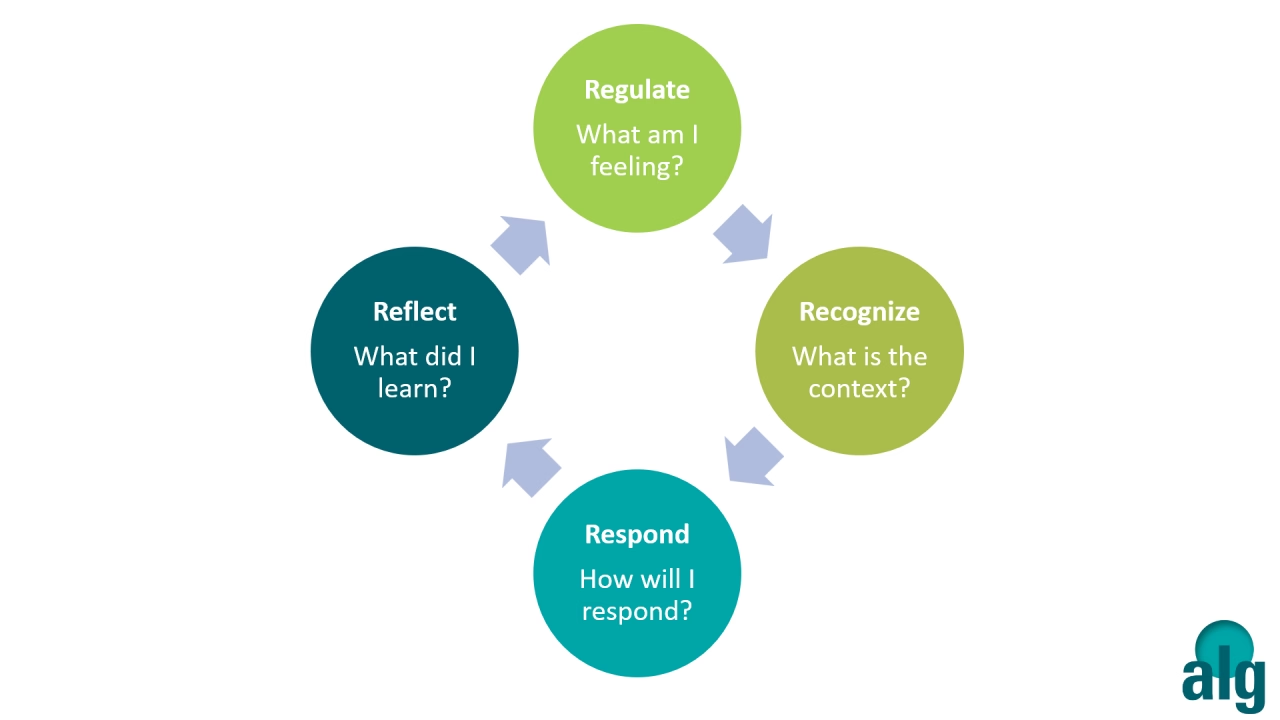Those who have been following me know I previously wrote about how the future of DEI is trauma informed.
This got an overwhelming response when I put it into the world. If you are new to trauma-informed approaches this is a good first step article!
If you want to dive deeper, and learn new ways to lead in a trauma-informed way, read on!
The 4Rs is a trauma-informed approach I use with clients, for example in building a culture of respect trainings to emphasize a pause and reflect moment, as a first step to making better workplace decisions. e.g., how to respond to an interaction.
Neuroscience shows us that when fear runs the show, our rational brains go offline, and we can’t make good decisions. This is why the first R, emotional regulation, is crucial. In the age of chaos, we can’t let fear rule.
Kudos to Rabbi Tirzah Firestone for this above wisdom.
So, today, let’s focus on the first of the 4Rs: REGULATE.
Emotional regulation is about becoming aware of automatic nervous system reactions to our surroundings and interactions before deciding how to respond.
This involves ©3Cs:
1) being conscious of what is happening in your body and mind
e.g. What am I feeling in my body? Tension? Pain? Discomfort? Difficulty breathing? Where am I feeling it? Is it in my shoulders? My back etc.
2) getting curious about what is happening in your body and mind (rather than judging)
e.g. asking inquiry questions (with curiosity, not judgement). Questions could include: In what ways does my reaction to the debates around DEI remind me of something or someone? What might it be bringing up in relation to my experiences? Have I reacted this way before?
3) comforting what is happening in your body and mind
e.g. asking yourself, what is one thing I can do that could help me feel 5% more centered? It could be as simple as remembering to breath. Other examples for comforting I have been using include: taking a walk and noticing surroundings, limiting social media scrolling.
For skeptics out there, this is not “airy fairy”. If you are a leader, you cannot respond effectively if you are caught in a limbic Fight-Flight-Freeze or Fawn reaction. Your executive function is impaired, and you will only react.
As a leader, when you regulate, you are channeling your emotions productively to make change. You can then better access creativity and innovation when you move to the stages of fully recognizing the current context and responding with integrity, and wisdom.
Regulation is not a panacea, but it should be a crucial step of any organizational decision-making process and to building psychological safety.
How could the 4rs guide you in your current work? I would love to hear your feedback as this is a an iterative work in progress that lives with how it works for you!
Stay tuned for more on the 4Rs (an exciting project for ALG is in store, watch this space!)
In the meantime, organizations and leaders can reach out to ALG to learn about us and our trauma-informed solutions
Until we meet, take care of yourselves, and each other.
Adriana and the ALG team


